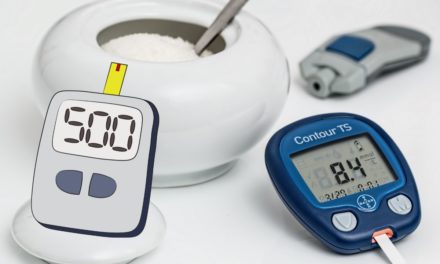Insulin resistance is a complex metabolic condition that occurs when the body’s cells become less responsive to the hormone insulin. To understand the complexities of insulin resistance and its relationship to various aspects of human physiology, we need to understand the role of insulin, the factors influencing its action, and the development of insulin resistance.
1. Role of Insulin:
Insulin is a hormone that is produced by the beta cells of the pancreas. Its main role is to regulate glucose metabolism and maintain normal blood sugar levels in the body. When we eat carbohydrates, they are broken down into glucose, which enters the bloodstream. In response to increased blood glucose levels, the pancreas releases insulin. Insulin acts as a key that unlocks the cells, allowing glucose to enter and be used as an energy source.
2. Insulin signaling and cellular response:
For insulin to do its job, it must bind to specific insulin receptors on the surface of cells. This binding initiates a series of intracellular signaling events, ultimately promoting the translocation of glucose transporters (GLUT4) across the cell membrane. These transporters facilitate the release of glucose from the bloodstream into the interior of the cell.
3. Development of insulin resistance:
Insulin resistance occurs when cells become less sensitive to the action of insulin, leading to less glucose uptake. As a result, the body needs to produce more insulin to maintain normal blood sugar levels, a condition known as hyperinsulinemia. Several factors contribute to the development of insulin resistance:
- Obesity: Adipose tissue (fat cells) release inflammatory molecules that interfere with insulin signaling, contributing to insulin resistance.
- Physical inactivity: Regular exercise improves insulin sensitivity, while a sedentary lifestyle promotes insulin resistance.
- Genetics: Certain genetic factors can predispose individuals to insulin resistance.
- Dietary factors: High consumption of refined carbohydrates, sugary drinks, and saturated fats can contribute to insulin resistance.
- Inflammation: Chronic low-grade inflammation can affect insulin signaling.
- Hormonal imbalance: Hormones such as cortisol (the stress hormone) and certain cytokines can interfere with insulin sensitivity.
4. Effects on the Body:
Insulin resistance has far-reaching effects on the body, affecting various organs and systems:
- Type 2 diabetes: If insulin resistance becomes severe and the pancreas cannot produce enough insulin to compensate, it can lead to type 2 diabetes. It is characterized by chronically elevated blood glucose levels.
- Cardiovascular system: Insulin resistance is associated with the risk of developing cardiovascular diseases such as heart disease and high blood pressure.
- Liver: In insulin resistance, the liver can overproduce glucose, which raises blood sugar levels.
- Pancreas: The pancreas may experience increased stress as it tries to produce more insulin, possibly leading to beta cell dysfunction over time.
- Other health problems: Insulin resistance is linked to a range of health problems, including polycystic ovary syndrome (PCOS), fatty liver disease, and certain types of cancer.
5. Detecting and managing insulin resistance:
Insulin resistance often goes unnoticed for a long time because it may not initially cause significant symptoms. However, regular health checkups and blood tests can detect early signs of insulin resistance. Managing insulin resistance involves lifestyle changes, such as eating a balanced diet, engaging in regular physical activity, and maintaining a healthy weight. In some cases, medications may be prescribed to improve insulin sensitivity and regulate blood sugar levels.
In conclusion, insulin resistance is a multifactorial metabolic condition that results from a complex interaction between genetics, lifestyle, and environmental factors. Understanding this relationship is critical to preventing or managing conditions such as type 2 diabetes and cardiovascular disease, which are associated with insulin resistance. Following a healthy lifestyle and receiving medical guidance can significantly reduce the effects of insulin resistance on overall health.










